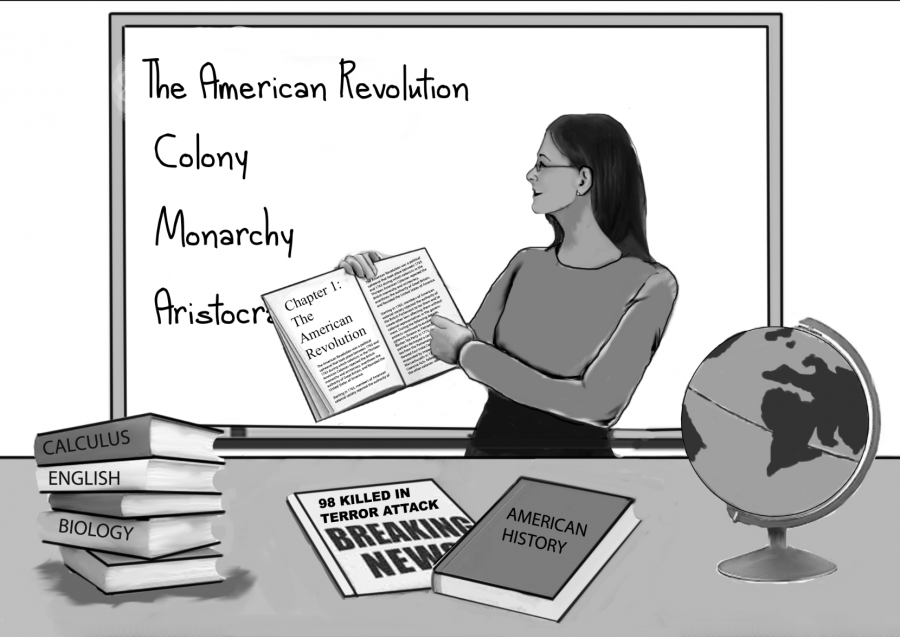Teachers and students need to enter the school year with a new philosophy, one that prioritizes the discussion and inclusion of life-altering news more in the classroom. As of now, it appears that the school prioritizes class lectures over the news.
“Living and learning with integrity,” a portion of the school’s mission statement, should mean encouraging healthy discussion and informing one another on current events rather than shying away in fear of straying from the rigid coursework. The school’s demanding curriculum is what it’s known for. While the curriculum prepares students for college, discussions about current events prepare students for life.
Building empathy and encouraging a global perspective is just as important as testing students’ memorization skills, whether it be through news quizzes, math tests or otherwise.
It’s a problem when tragedies are happening on a daily basis, some even hitting closer to home, like the tragic San Bernardino shootings, and, yet, we still fail to acknowledge any of these events in our everyday classes.
According to the Chronicle August poll, 68 percent of students feel that their teachers do not discuss current events enough in the classroom and 83 percent would like their teachers to discuss them more. While this does not apply to all teachers, this is still a widespread issue at the school.
The summer of 2016 saw a series of assaults on humanity: the attacks on Nice, the shooting in Orlando, the airport attack in Istanbul, the killing of police officers in Dallas and far too many others. Considering that so many students and faculty members have the resources to travel abroad, many of these tragedies have directly impacted members of the school community.
The feature piece entitled “When tourism meets terrorism” on C1, for example, highlights how terrorism affected their experiences abroad. Teachers and students should go into the school year with these events fresh on their minds, ready to discuss their significance.
Students should not feel as if their teachers are only there to teach them one single subject; instead, they should view teachers as resources, even in areas not directly related to the class they teach.
That’s not to say teachers should ignite political debates in their classes, but it’s disappointing when almost all of the Chronicle staff can say that none of their teachers addressed the San Bernardino attack on the day it happened.
Teachers could, for example, moderate discussions about these tragedies to ensure everyone’s voice is heard.
The school holds all-school assemblies twice a month for the purpose of building community and discussing relevant matters. Let’s use some of that time as a chance to get out of the Harvard-Westlake bubble and take a look at the world around us.































